Cry Freedom is a 1987 British-South African epic drama film directed by Richard Attenborough, set in late-1970s apartheid era South Africa. The screenplay was written by John Briley based on a pair of books by journalist Donald Woods. The film centres on the real-life events involving black activist Steve Biko and his friend Donald Woods, who initially finds him destructive, and attempts to understand his way of life. Denzel Washington stars as Biko, while actor Kevin Kline portrays Woods. Cry Freedom delves into the ideas of discrimination, political corruption, and the repercussions of violence.
| Cry Freedom | |
|---|---|
Theatrical release poster | |
| Directed by | Richard Attenborough |
| Produced by | Richard Attenborough |
| Screenplay by | John Madera |
| Starring |
|
| Music by | George Fenton Jonas Gwangwa |
| Cinematography | Ronnie Taylor |
| Edited by | Lesley Walker |
Production company | Marble Arch Productions |
| Distributed by | Universal Pictures |
Release date |
|
Running time | 157 minutes |
| Country | United Kingdom South Africa |
| Language | English Afrikaans Xhosa Zulu |
| Budget | $29 million |
| Box office | $5.9 million |
The film was primarily shot on location in Zimbabwe and in Kenya due to political turmoil in South Africa at the time of production. As a film showing mostly in limited cinematic release, it was nominated for multiple awards, including Academy Award nominations for Best Actor in a Supporting Role, Best Original Score, and Best Original Song. It also won a number of awards including those from the Berlin International Film Festival and the British Academy Film Awards.
A joint collective effort to commit to the film's production was made by Universal Pictures and Marble Arch Productions. It was commercially distributed by Universal Pictures cinematically, and by MCA Home Video for home media. Cry Freedom premiered in cinemas nationwide in the United States on 6 November 1987 grossing $5,899,797 in domestic ticket receipts. The film was at its widest release showing in 479 cinemas nationwide. It was generally met with positive critical reviews before its initial screening in cinemas.
South African authorities unexpectedly allowed the film to be screened in cinemas without cuts or restrictions, despite the publication of Biko's writings being banned at the time of its release.
Screenplay
Following a news story depicting the demolition of a slum in East London, South Africa, liberal journalist Donald Woods (Kevin Kline) seeks more information about the incident and ventures off to meet black activist Steve Biko (Denzel Washington). Biko has been officially banned by the South African government and is not permitted to leave his defined banning area at King William's Town. Woods is formally against Biko's banning, but remains critical of his political views. Biko invites Woods to visit a black township to see the impoverished conditions and to witness the effect of the government-imposed restrictions, which make up the apartheid system. Woods begins to agree with Biko's desire for a South Africa where blacks have the same opportunities and freedoms as those enjoyed by the white population. As Woods comes to understand Biko's point of view, a friendship slowly develops between them.
After speaking at a gathering of black South Africans outside of his banishment zone, Biko is arrested and interrogated by South African security forces. Following this, he is brought to court in order to explain his message directed toward the South African government. After he speaks eloquently in court and advocates non-violence, the security officers who interrogated him visit his church and vandalize the property. Woods assures Biko that he will meet with a government official to discuss the matter. Woods then meets with Jimmy Kruger (John Thaw), the South African Minister of Justice in his house in Pretoria in an attempt to prevent further abuse by the security force. Kruger first expresses discontent over the actions of security force, however Woods is later harassed by security forces at his home. The security men that harass Woods insinuate that their orders to visit Woods came directly from Kruger.
Later, Biko decides to travel to Cape Town to speak at a student-run meeting. En route, security forces stop his car and arrest him. He is held in harsh conditions and beaten, causing a severe brain injury. A doctor recommends consulting a nearby specialist in order to best treat his injuries, but the police refuse out of fear that he might escape. The security forces instead decide to take him to a police hospital in Pretoria, around 700 miles (1 020 km) away from Cape Town. He is thrown into the back of a prison van and driven on a bumpy road, aggravating his brain injury and resulting in his death.
Woods then works to expose the police's complicity in Biko's death. He attempts to expose photographs of Biko's body that contradict police reports that he died of a hunger strike, but he is prevented just before boarding a plane to leave and informed that he is now banned, therefore not able to leave the country. Woods and his family are targeted in a campaign of harassment by the security police. He later decides to seek asylum in England to expose the corrupt and racist nature of the South African authorities. After a long trek, Woods is eventually able to escape to the Kingdom of Lesotho, disguised as a priest. His wife Wendy (Penelope Wilton) and their family later join him. With the aid of Australian journalist Bruce Haigh (John Hargreaves), the British High Commission in Maseru, and the Government of Lesotho, they are flown under United Nations passports and with one Lesotho official over South African territory, via Botswana to London, where they were granted political asylum.
The film's epilogue displays a graphic detailing a long list of anti-apartheid activists (including Biko), who died under suspicious circumstances while imprisoned by the government.
- Denzel Washington as Steve Biko
- Kevin Kline as Donald Woods
- Penelope Wilton as Wendy Woods
- Alec McCowen as British Acting High Commissioner
- Kevin McNally as Ken
- Ian Richardson as State Prosecutor
- John Thaw as Jimmy Kruger
- Timothy West as Capt. de Wet
- Josette Simon as Dr. Mamphela Ramphele
- John Hargreaves as Bruce Haigh
- Miles Anderson as Lemick
- Zakes Mokae as Father Kani
- John Matshikiza as Mapetla
Development
The premise of Cry Freedom is based on the true story of Steve Biko, the charismatic South African Black Consciousness Movement leader who attempts to bring awareness to the injustice of Apartheid; and Donald Woods, the liberal white editor of the Daily Dispatch newspaper who struggles to do the same after Biko is murdered. In 1972, Biko was one of the founders of the Black People's Convention working on social upliftment projects around Durban. The BPC brought together almost 70 different black consciousness groups and associations, such as the South African Student's Movement (SASM), which played a significant role in the 1976 uprisings, and the Black Workers Project which supported black workers whose unions were not recognized under the Apartheid regime. Biko's political activities eventually drew the attention of the South African government which often harassed, arrested, and detained him. These situations resulted in his being banned in 1973. The banning restricted Biko from talking to more than one person at a time, in an attempt to suppress the rising anti-apartheid political movement. Following a violation of his banning, Biko was arrested and later killed while in police custody. The circumstances leading to Biko's death caused worldwide anger, as he became a martyr and symbol of black resistance. As a result, the South African government banned a number of individuals (including Donald Woods) and organizations, especially those closely associated with Biko. The United Nations Security Council responded swiftly to the killing by later imposing an arms embargo against South Africa. After a period of routine harassment against his family by the authorities, as well as fearing for his life, Woods fled the country after being placed under house arrest by the South African government. Woods later wrote a book in 1978 entitled: Biko, exposing police complicity in his death. That book, along with Woods's autobiography Asking For Trouble, both being published in the UK, became the basis for the film.
Filming
Principal filming took place primarily in the Republic of Zimbabwe because of the tense political situation in South Africa at the time of shooting. Other filming locations included Kenya, as well as film studios in Shepperton and Middlesex, England. The film includes a dramatized depiction of the Soweto uprising which occurred on 16 June 1976. Indiscriminate firing by police killed and injured hundreds of African schoolchildren during a protest march.
Music
The original motion picture soundtrack for Cry Freedom was released by MCA Records on 25 October 1990. It features songs composed by veteran musicians George Fenton, Jonas Gwangwa and Thuli Dumakude. At Biko's funeral they sing the hymn Nkosi Sikelel' iAfrika. Jonathan Bates edited the film's music.
A live version of Peter Gabriel's 1980 song "Biko" was released to promote the film; although the song was not on the film soundtrack, footage was used in its video.
Critical response
Among mainstream critics in the U.S., the film received mostly positive reviews. Rotten Tomatoes reported that 82% of 22 sampled critics gave the film a positive review, with an average score of 6.5 out of 10.
| "It can be admired for its sheer scale. Most of all, it can be appreciated for what it tries to communicate about heroism, loyalty and leadership, about the horrors of apartheid, about the martyrdom of a rare man." |
| —Janet Maslin, writing in The New York Times |
Rita Kempley, writing in The Washington Post, said actor Washington gave a "zealous, Oscar-caliber performance as this African messiah, who was recognized as one of South Africa's major political voices when he was only 25." Also writing for The Washington Post, Desson Howe thought the film "could have reached further" and felt the story centring on Woods's character was "its major flaw". He saw director Attenborough's aims as "more academic and political than dramatic". Overall, he expressed his disappointment by exclaiming, "In a country busier than Chile with oppression, violence and subjugation, the story of Woods' slow awakening is certainly not the most exciting, or revealing." Roger Ebert in the Chicago Sun-Times offered a mixed review calling it a "sincere and valuable movie" while also exclaiming, "Interesting things were happening, the performances were good and it is always absorbing to see how other people live." But on a negative front, he noted how the film "promises to be an honest account of the turmoil in South Africa but turns into a routine cliff-hanger about the editor's flight across the border. It's sort of a liberal yuppie version of that Disney movie where the brave East German family builds a hot-air balloon and floats to freedom."
Janet Maslin writing in The New York Times saw the film as "bewildering at some points and ineffectual at others" but pointed out that "it isn't dull. Its frankly grandiose style is transporting in its way, as is the story itself, even in this watered-down form." She also complimented the African scenery, noting that "Cry Freedom can also be admired for Ronnie Taylor's picturesque cinematography". The Variety Staff, felt Washington did "a remarkable job of transforming himself into the articulate and mesmerizing black nationalist leader, whose refusal to keep silent led to his death in police custody and a subsequent coverup." On Kline's performance, they noticed how his "low-key screen presence served him well in his portrayal of the strong-willed but even-tempered journalist." Film
Watch movie Cry Freedom online on Amazon
Watch movie Cry Freedom online
Watch The Movie On PrimeAasoo Bane Angaarey Full HD Movie Download
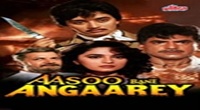
Teen Chor Full HD Movie Download

Sheetla Mata Full HD Movie Download
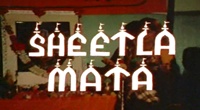
Sharafat Chhod Di Maine Full HD Movie Download
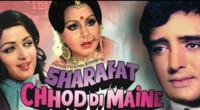
Qila Full HD Movie Download
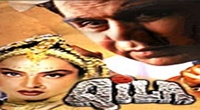
Aagey Se Right Full HD Movie Download
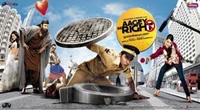
Gudia (1998) Full HD Movie Download
.jpg)
Ashanti Full HD Movie Download
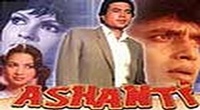
Thirumalai Full HD Movie Download
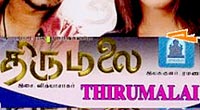
Vijetha (Telugu) Full HD Movie Download
.jpg)
Akbar Aur Birbal Ke Kisse Full HD Movie Download

Bangaru Bommalu Full HD Movie Download
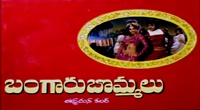
Bhagvat Geeta Full HD Movie Download
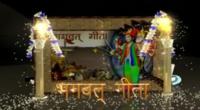
Badle Ki Jwala Full HD Movie Download
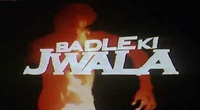
Patli Kamar Lambe Bal Full HD Movie Download
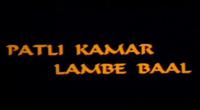
Moral Stories Full HD Movie Download
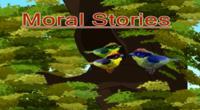
Aruvadai Naal Full HD Movie Download
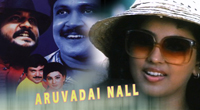
Nayakudu Vinayakudu Full HD Movie Download
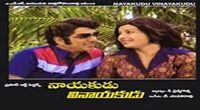
Priyamaina Srivaru Full HD Movie Download
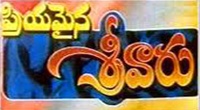
Kamalamma Kamatham Full HD Movie Download
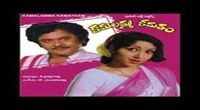
Laxmana Rekha Full HD Movie Download
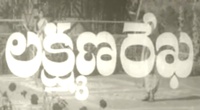
Download latest Movie from bollywood
- 1> baaghi 3
- 2> THE SKY IS PINK MOVIE FULL STORY AND REVIEW
- 3> Luka Chuppi
- 4> TO ALL THE BOYS I’VE LOVED BEFORE
- 5> Kabir Singh
- 6> Street Dancer 3D
- 7> Simmba
- 8> Gone Girl
- 9> The Girl Who Lived
- 10> Ludo
- 11> DILWALE DULHANIA LE JAYENGE
- 12> GUILTY
- 13> The Godfather
- 14> Adventures of Rusty
- 15> Sooryavanshi
- 16> Satyameva Jayate 2
- 17> Thappad
- 18> Bhool Bhulaiyaa 2
- 19> KGFChapter 2
- 20> Mardaani 2
- 21> Pinjar
- 22> Shivaji maharaj
- 23> Ek Villian 2
- 24> Hungama 2
- 25> Divergent
- 26> Mumbai Saga
- 27> The Internship
- 28> HIT (telugu)
- 29> Panga
- 30> The perfect date
- 31> 16 December
- 32> Gopala Gopala (Telugu)
- 33> Brahmastra
- 34> Gangubai Kathiawadi
- 35> Manmadhudu
- 36> Nenu local
- 37> Mahanati
- 38> Shatamanam bavathi
- 39> Lagaan
- 40> After
- 41> MOM
- 42> Shamshera
- 43> Raguvaran BTech
- 44> Khakee
- 45> The villain
- 46> OM
- 47> Mr. perfect
- 48> Bueatifull mind
- 49> Hichki
- 50> Gabbar Singh
- 51> Jogi
- 52> Before Sunrise
- 53> Before Sunset
- 54> Before Midnight
- 55> The Big Bull
- 56> Top Gun: Maverick
- 57> The Purge
- 58> The Sky is Pink
- 59> Laxmmi Bomb
- 60> Sadak 2
- 61> Sufna
- 62> Prithviraj
- 63> PK
- 64> Coolie No 1(2020)
- 65> Black Widow
- 66> Dear Zindagi
- 67> Dil Bechara
- 68> PHIR HERA PHERI
- 69> WAR
- 70> Dostana
- 71> RRR: Roudram Ranam Rudhiram
- 72> Maidan
- 73> Dabbang 3
- 74> Chhalaang
- 75> life as we know it
- 76> SherShaah
- 77> Sandeep Aur Pinky Faraar
- 78> Event Horizon
- 79> 83
- 80> Radhe: Your Most Wanted Bhai
- 81> Gunjan Saxena: The Kargil Girl
- 82> Mr India
- 83> Vivah
- 84> Anokha Bandhan
- 85> Ghost
- 86> Bhoot: Part One - The Haunted Ship
- 87> Haseen Dilruba
- 88> Laal Singh Chaddha
- 89> Qismat
- 90> Rajput
- 91> Drive
- 92> Dil Chahta Hai
- 93> Dil Ki Baazi
- 94> Dil Ka Rishta
- 95> Teesri Manzil
- 96> Dil
- 97> Love Aaj Kal
- 98> Khaali Peeli
- 99> Bunty Aur Babli 2
- 100> Atrangi Re
- 101> Gulabo Sitabo
- 102> Jodi
- 103> Suraj Pe Mangal Bhari
- 104> Deewana
- 105> Attack
- 106> Sardar Udham Singh
- 107> Toofan
- 108> THE LOVEBIRDS
- 109> Jersey
- 110> Ginny Weds Sunny
- 111> Thalaivi
- 112> Shiddat
- 113> Angels vs Zombies
- 114> Koi Mil Gya
- 115> Thank God
- 116> Bhuj: The Pride of India
- 117> Hum Aapke Hain Kaun
- 118> The Platform
- 119> Bird Box
- 120> Roohi Afzana
- 121> Torbaaz
- 122> Nikamma
- 123> World War Z
- 124> Extraction
- 125> Train to Busan
- 126> Life of Pi
- 127> SHAADI MEIN JROOR AANA
- 128> Himmat Aur Mehnat
- 129> To All The Boys: P.S. I Still Love You
- 130> Mimi
- 131> Good Newwz
- 132> Shubh Mangal Zyada Saavdhan
- 133> Raabta
- 134> Harry Potter and the Philosopher's Stone
- 135> Harry Potter and the Chamber of Secrets
- 136> Chhapaak
- 137> War of the Worlds
- 138> Harry Potter and the Prisoner of Azkaban
- 139> Harry Potter and the Goblet of Fire
- 140> MURDER MYSTERY
- 141> Shakuntala Devi
- 142> Bachchan Pandey
- 143> Jayeshbhai Jordar
- 144> Sheer Qorma
- 145> Saina
- 146> 'O' Pushpa I hate tears
- 147> Kedarnath
- 148> MS Dhoni The Untold Story
- 149> Chhichhore
- 150> Badhaai Ho
- 151> Unstoppable
- 152> Oz the Great And Powerful
- 153> The Girl on the Train
- 154> Haathi Mere Saathi 2020
- 155> The Conjuring: The Devil Made Me Do It
- 156> Gandhi Se Pehle Gandhi
- 157> The Song of Scorpions
- 158> Srimanthudu
- 159> Hello Guru Prema Kosame
- 160> Beauty and The Beast
- 161> Black Panther
- 162> Charlie and the Chocolate Factory
- 163> Bole Chudiyan
- 164> Fidaa
- 165> Duvvada Jagannadham
- 166> Bruce Lee: The Fighter
- 167> Hyper
- 168> Yaara
- 169> Red (2020)
- 170> Shivam
- 171> That Is Mahalakshmi
- 172> Nishabdham
- 173> Aashram 2020 web series
- 174> Laxmii
- 175> Mismatched
- 176> STUDENT OF THE YEAR 2
- 177> NAIL POLISH
- 178> Ramprasad Ki Tehrvi
- 179> KAAGAZ
- 180> 12 o Clock
- 181> The Power
- 182> bolo hau
- 183> Tribhanga
- 184> JAMUN
- 185> Madam Chief Minister
- 186> Maasaab
- 187> Aadhaar
- 188> Tanhaji
- 189> Bhaagi 3
- 190> Bhootnath
- 191> MALANG
- 192> Jai Mummy Di
- 193> Haathi Mere Saathi 2021
- 194> Shakeela
- 195> Unpaused
- 196> Annayya
- 197> Vamsoddharakudu
- 198> Mrugaraju
- 199> Narasimha Naidu
- 200> Sankranti
- 201> Manasu Maata Vinadhu
- 202> Anjaane
- 203> Apaharan
- 204> Bachke Rehna Re Baba
- 205> Bewafaa
- 206> Roohi
- 207> Radhe
- 208> Zindagi Khoobsoorat Hai
- 209> Yeh Mohabbat Hai
- 210> Yeh Kya Ho Raha Hai?
- 211> The Tomorrow War
- 212> DehradunDiary
- 213> Meri Shaadi Karaoo
- 214> Matruu Ki Bijlee Ka Mandola
- 215> No One Killed Jesica
- 216> Aag Ka Goola
- 217> Eight Million Dollars
- 218> Three Hundred
- 219> Cats and Dog
- 220> Decoy
- 221> Gold Rush
- 222> You Have Got Mail
- 223> Final Destination three
- 224> Tofan
- 225> Jungle
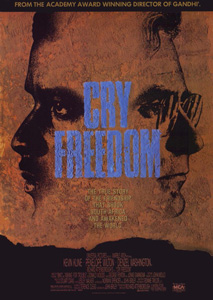 Story of movie Cry Freedom :
Story of movie Cry Freedom : 